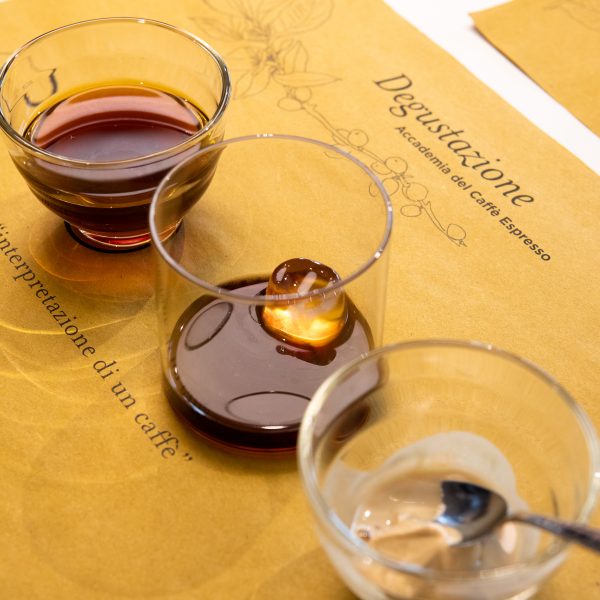Research and Sustainability
Coffee, a raw material produced in places so distant, often in extreme conditions, imposes the need to continue researching solutions that protect it from the threats of climate change and contribute to improving the quality of life for those who depend on its cultivation. Accademia aims to be a reference point for studies and applied research projects that facilitate the connection between producers and consumers in the construction of a virtuous and sustainable system.
Current Projects
Determination of origin and traceability of high-quality coffee
The research aims at presenting scientific tools and analyses, which help foster coffee traceability and protect consumers from the risk of frauds related to coffee orgins and quality
The general objective of the project is to develop an analysis model for the characterization of the geographical origin of coffee beans, based on a metabolomic approach for the evaluation of both aromatic-volatile and polar-non-volatile fractions.
The project uses two different analytical methods: the first aims to classify the origin of coffee based on the volatile organic compounds (VOCs) profile using a PTR-ToF-MS technique, the second, based on the HPLC-ESI-HRMS, aims to study the non-volatile profile.
Fabbrica dell'Aria
The coffee plantation in the greenhouse located at the center of Accademia has been utilized as a base for the installation of the Fabbrica dell’Aria® (Air Factory), and it is the coffee plants themselves that purify the indoor air. Four of the coffee plants in the greenhouse have been transplanted into tanks equipped with Stomata technology, allowing the air to spread better within the substrate by coming into contact with the root system and the complex network of microorganisms, the main agents responsible for degrading target pollutants. Thanks to Stomata, the air to be purified spreads within the substrate, where the combined action of microorganisms and plant roots leads to the absorption and degradation of pollutants. An additional filtration stage is provided by the leaves, which absorb the remaining pollutants, degrade them, and convert them into other compounds beneficial for the plants.
ConSenso
The project focuses on the remote monitoring of a coffee plantation and aims to enhance consumer awareness regarding coffee production and supply chains while simultaneously optimizing agronomic practices. Two key actions are planned: the first involves the development of specific IoT sensors for coffee, and the second involves the calculation and visualization of carbon sequestered in the plantation. The IoT sensor system enables real-time monitoring of internal parameters of coffee plants, forming a comprehensive database to optimize key activities such as irrigation or monitoring the health status of the plants.
Effects of fermentation on coffee quality
The research aims to monitor and measure the evolution of sugars and acids during the coffee processing phase. Two coffee varieties (Pacas and Lempira) at three different stages of fermentation were analyzed during the 2022-2023 season. Throughout the fermentation process, both the processing water and coffee beans were regularly analyzed using the CDR CoffeeLab instrument.



